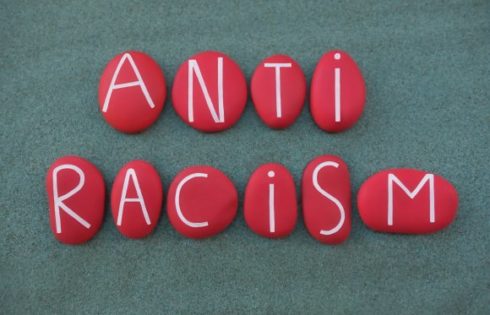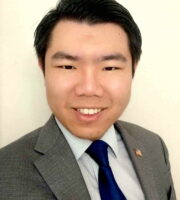
OPINION: Law school debate ‘quickly descended into something of a struggle session filled with accusations and moral theatrics’
My public health class at American University law school recently included a debate over whether states should impose criminal sanctions on people who seek or perform abortions on the sole basis of the fetus’ sex, race, or disability status.
Besides myself, the entire class was unanimously against criminalization. Out of the 14 other law students, not a single one spoke up in my defense. The debate quickly descended into something of a struggle session filled with accusations and moral theatrics.
The professor, an adjunct whose main job is director of policy development and strategy at Planned Parenthood who has been hired to teach “reproductive rights” at my law school for the past seven years, fired the opening salvo at me.
She insisted bans on sex-selective abortions “stigmatize and racially profile Asians who are portrayed as being more likely to want to abort girls.” The rest of the class joined the chorus of condemnation. “We gotta remember that white society will always find ways to control immigrant women’s bodies,” one student warned. In other words, I am a racist.
Setting aside the question of whether Asians are more likely than people of other racial or ethnic backgrounds to engage in sex-selective abortions, or whether I had “internalized racism” as an Asian person myself, I wonder how those who condone sex-selective abortions could ever reconcile such practices with their own obsession with women’s rights. If boys and girls are of equal worth, why should people be allowed to abort the latter absent any other justification?
As for why race-selective abortions should not be banned, the student who volunteered his wisdom gave the example of a white woman who aborted a mixed-race child conceived while she was cheating on her white husband with a black man. In this scenario, her intent to abort the child due to his race is inseparable from her desire to erase evidence of her infidelity. Otherwise, “her husband can tell from a glance that the child is not his. You’d be criminalizing this woman for seeking an abortion for a non-racial reason,” he said.
Was he saying that one is no longer guilty of racism when her racist intent is paired with a non-racist intent? Had I taken the opportunity to clarify his argument, would this white student—who earlier boasted that he had taken “critical race theory,” which is indeed the title of a semester-long course offered at my law school—have groveled before me to apologize? Perhaps I could have reminded him that his very audacity to talk back at me, a person of color, spoke to his racism.
Finally, banning disability-selective abortions supposedly criminalizes “compassion.” According to one student, many women abort fetuses with disabilities because of a belief that they will lack “quality of life,” not out of prejudice toward disabled persons as such. “Fetuses are not persons anyway,” she added, her vocal fry communicating sheer apathy.
That last sentence explains everything. If fetuses are not persons, then abortions done on the sole basis of their immutable characteristics would be of no consequence to groups whose identities derive from such characteristics. Concerns about racism, sexism, and ableism are reserved only for those living outside the womb.
But is it not the case that only persons can have “quality of life,” or possess attributes that indicate sex or race? My question set off a string of barely controlled emotional outbursts.
“[Fetal] personhood has no basis in American law,” a voice yelled. Another complained that “none of these discussions so far have focused on women themselves, on what they want and what’s best for their bodies.” The entire class scrambled to flee from any real engagement with my position.
Such is the caliber of these emerging attorneys. Their utter lack of empathy for the unborn, while appalling, does not impinge on their fitness to serve their communities as much as the fact that many of their so-called arguments are but personal insults, or that they seem largely unable to handle criticism without devolving into a frenzy.
Moreover, by failing to challenge the mob, my professor had effectively enabled it. After all, she herself admitted early on that “I teach this class from a reproductive justice perspective.”
Much work is needed to reverse the ideological capture of American higher education. But we can find hope knowing that our opponents are fragile, incoherent, and far removed from common sense.
MORE: Architecture exhibit at UW Milwaukee uses mops to advocate for ‘reproductive justice’
IMAGE: Subbotina Anna / Shutterstock





Please join the conversation about our stories on Facebook, Twitter, Instagram, Reddit, MeWe, Rumble, Gab, Minds and Gettr.